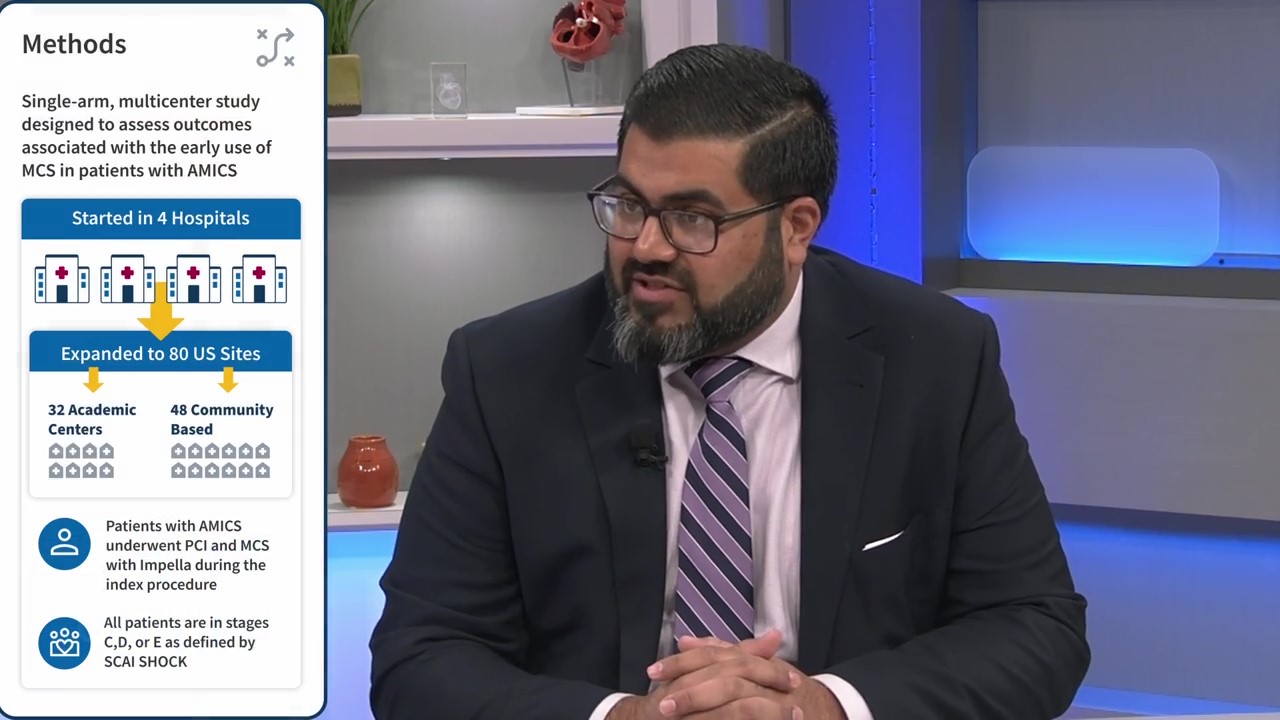Anticoagulation, Patient Management
Christophe Vandenbriele: Anticoagulation Challenges in Patiens Supported with Impella® Heart Pumps
Dr. Pal Soos interviews Prof. Dr. Christophe Vandenbriele, a cardiologist and intensivist from UZ Leuven (Belgium) and research fellow at Royal Brompton Hospital in London. Dr. Vandenbriele recently published several articles on management of patients with percutaneous mechanical circulatory support (MCS). In this 3-part series, he discusses anticoagulation management in patients supported with Impella® heart pumps.
Challenges of Monitoring Anticoagulation in Cardiogenic Shock
- What factors influence hemostasis in patients with cardiogenic shock?
- How do you monitor hemostasis?
- What factors influence heparin effectiveness in these critically ill patients?
- How do ECMO, Impella heart pumps, and hemodialysis influence coagulation parameters?
- How can you improve hemostasis in patients with both cardiogenic shock and sepsis?
Algorithm for Heparin Monitoring
- Which parameters are key to heparin monitoring?
- How often should APTT and anti-Xa measurements be taken?
- Why is it important to know the Impella pump flow rate when calculating the patient’s total heparin dosage?
- What is the heparin monitoring algorithm published by Vandenbriele et al. in JACC?
- Can a standardized protocol for heparin monitoring improve outcomes?
Managing Hemolysis in Patients Supported with Impella Heart Pumps
- What common factors underly significant hemolysis?
- How is hemolysis defined and measured?
- Why is it important to avoid hemolysis?
- How can you prevent hemolysis?
- When do you consider escalating therapy?
Challenges of Monitoring Anticoagulation in Cardiogenic Shock
Prof. Dr. Christophe Vandenbriele discusses how to manage hemostasis and reduce bleeding risk in patients with cardiogenic shock. He explains that many coagulation processes are active at the same time in these patients, emphasizing, “probably we won’t get the answer from one single test because we need to monitor all those different coagulation pathways and systems… And I believe, based on the literature available, and based on how we monitor anticoagulation patients, that a combination of the APTT and the anti-Xa assay in patients anticoagulated with heparin will be the biggest key to success to avoid thrombotic and bleeding complications.” He presents 3 case examples to illustrate strategies for managing these patients.
Algorithm for Heparin Monitoring
Prof. Dr. Christophe Vandenbriele explains that while he not only relies on anti-Xa to monitor heparin levels, but also uses the combinational measurement. His protocol for heparin monitoring is based on a combination of tests—notably APTT and anti-Xa—to understand the effects of heparin on all the simultaneous processes occurring in the coagulation pathway. “But if you do not have the anti-Xa 24/7 available,” he states, “at least you should implement a standard protocol, because if everyone uses the same protocol in your institution… that will improve your outcome and might reduce your morbidity and mortality due to bleeding and thrombotic complications.” He also emphasizes monitoring Impella purge flow rate to determine the total amount of heparin the patient is receiving.
Managing Hemolysis in Impella Support
While there are many definitions of hemolysis, Prof. Dr. Christophe Vandenbriele explains why their institution leans towards defining hemolysis as a plasma-free hemoglobin (PfHgb) above 20mg/dl. “You should strive toward a negative hemolysis situation in your patient,” he emphasizes, describing how hemolysis can increase peripheral and pulmonary vasoconstriction and increase pulmonary hypertension; in addition, elevated PfHgb can adversely affect the kidneys and create a prothrombotic state. “It’s better to prevent than to treat, because once it’s there you will have damage.” He describes several ways to prevent hemolysis including meticulous Impella pump positioning. He also explains that if he recognizes hemolysis and PfHgb levels do not improve in the first few hours, he’ll escalate therapy without delay because it won’t improve on its own and, he warns, “You’ll pay a high price for it.”
Sign Up for Latest Updates
NPS-3216


